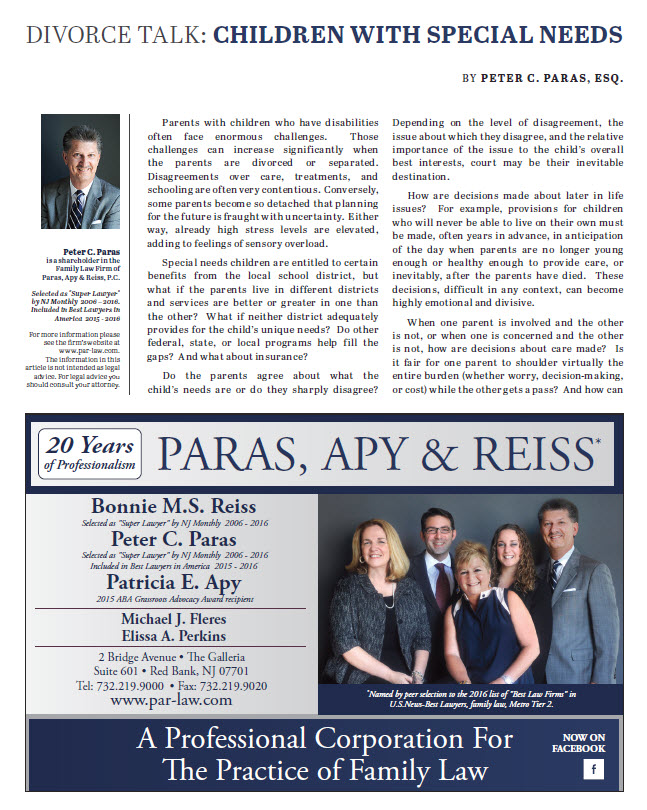Parents with children who have disabilities often face enormous challenges. Those challenges can increase significantly when the parents are divorced or separated. Disagreements over care, treatments, and schooling are often very contentious. Conversely,
some parents become so detached that planning for the future is fraught with uncertainty. Either way, already high stress levels are elevated, adding to feelings of sensory overload.
Special needs children are entitled to certain benefits from the local school district, but what if the parents live in different districts and services are better or greater in one than the other? What if neither district adequately provides for the child’s unique needs? Do other federal, state, or local programs help fill the gaps? And what about insurance?
Do the parents agree about what the child’s needs are or do they sharply disagree? Depending on the level of disagreement, the
issue about which they disagree, and the relative importance of the issue to the child’s overall best interests, court may be their inevitable destination.
How are decisions made about later in life issues? For example, provisions for children who will never be able to live on their own must be made, often years in advance, in anticipation of the day when parents are no longer young enough or healthy enough to provide care, or inevitably, after the parents have died. These decisions, difficult in any context, can become highly emotional and divisive.
When one parent is involved and the other is not, or when one is concerned and the other is not, how are decisions about care made? Is it fair for one parent to shoulder virtually the entire burden (whether worry, decision-making, or cost) while the other gets a pass? a detached parent be forced to be involved? That is difficult to achieve.
It is only through use of money as an incentive and a motivator that these burdens can be more fairly allocated. And when there is disagreement or a lack of cooperation, only a court can use economic leverage to get a parent to meet his obligation.
It is important to realistically assess and anticipate a child’s special needs so that, if disagreement or discord looms, court action should be taken early enough for it to make a difference. Waiting to the last minute is never a good idea. In this context, it could be catastrophic.


